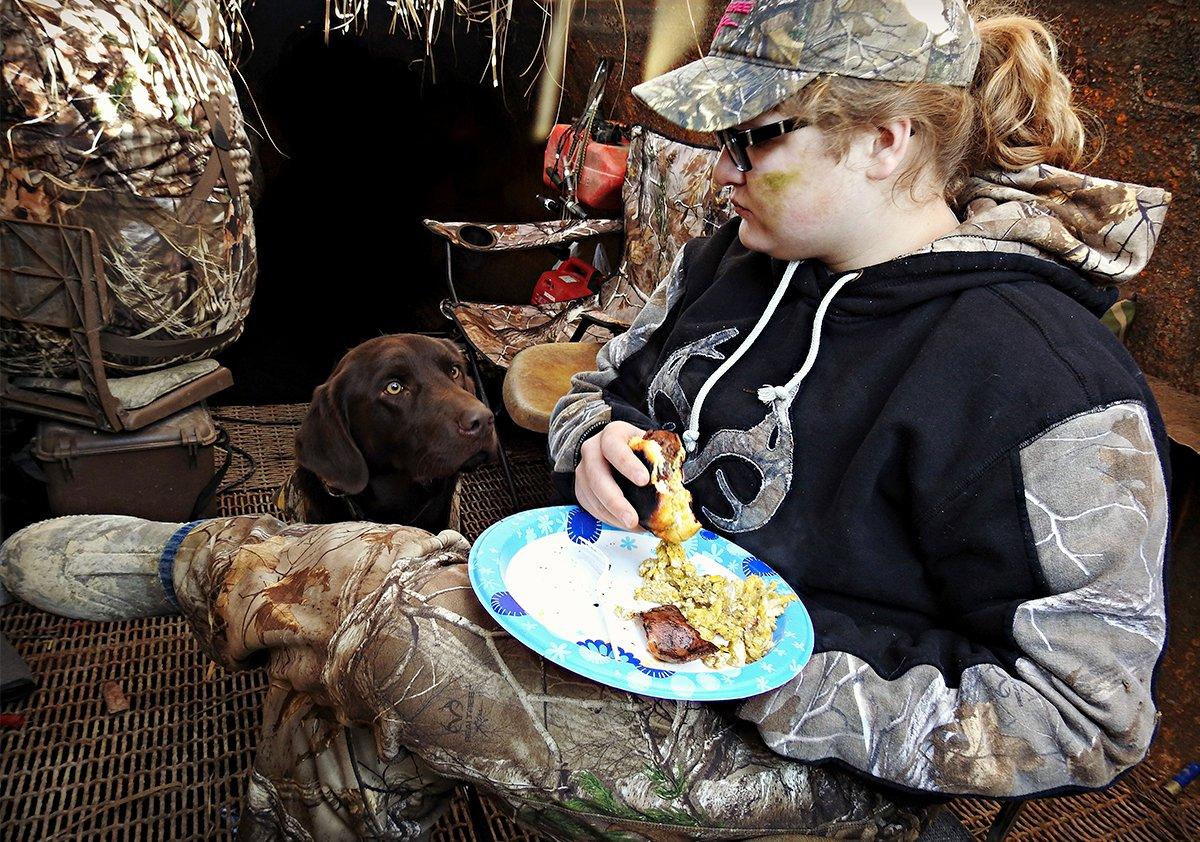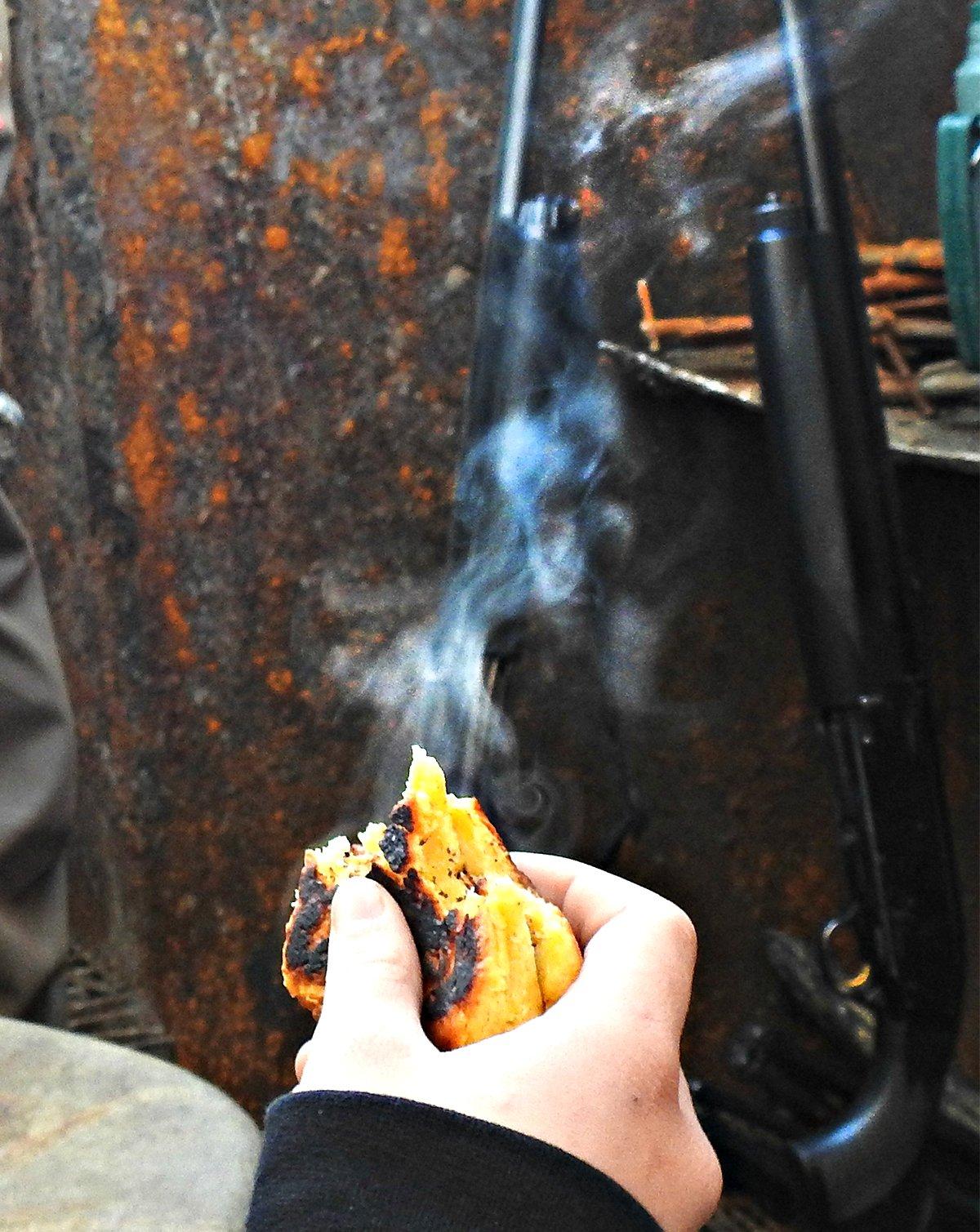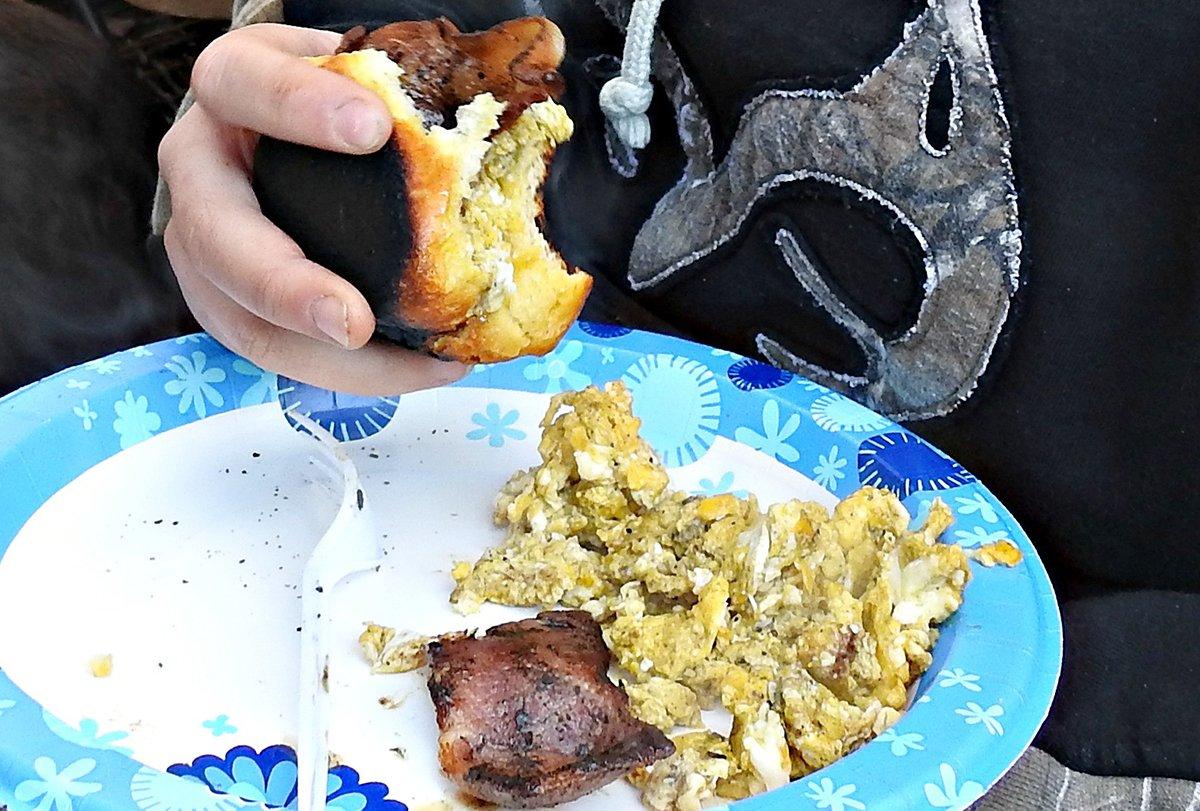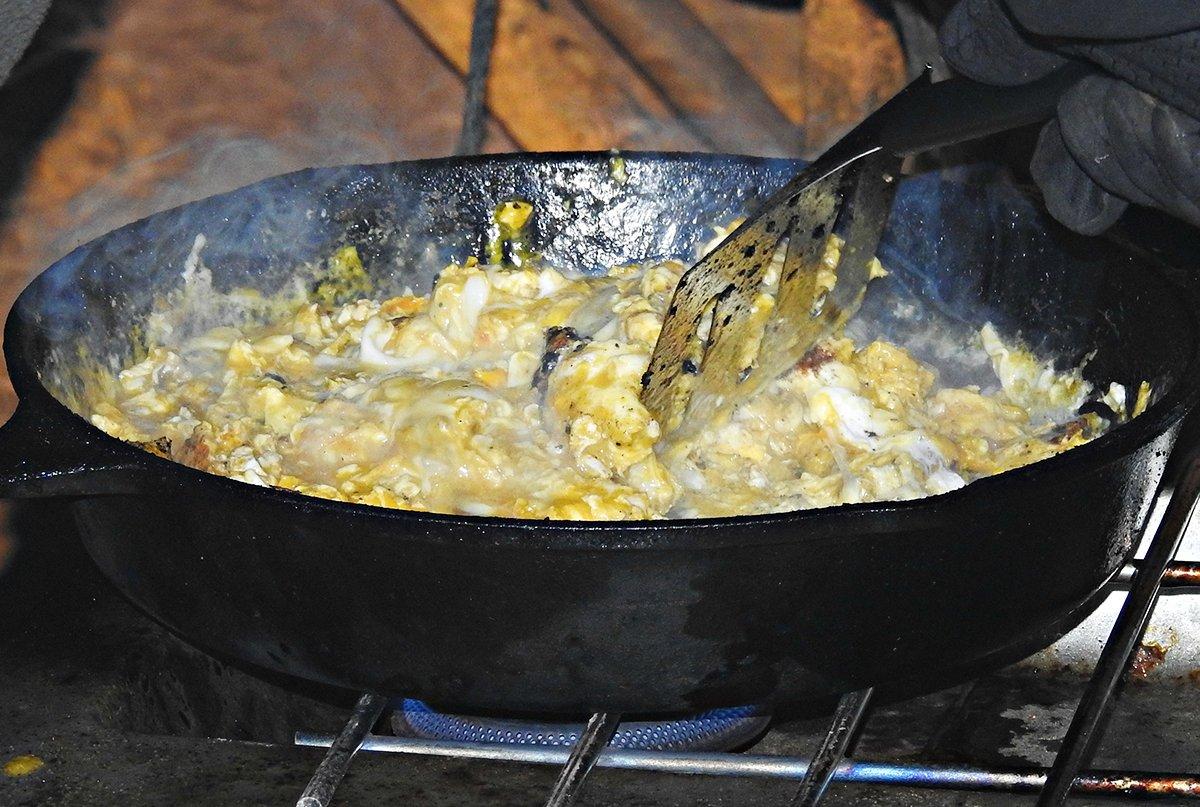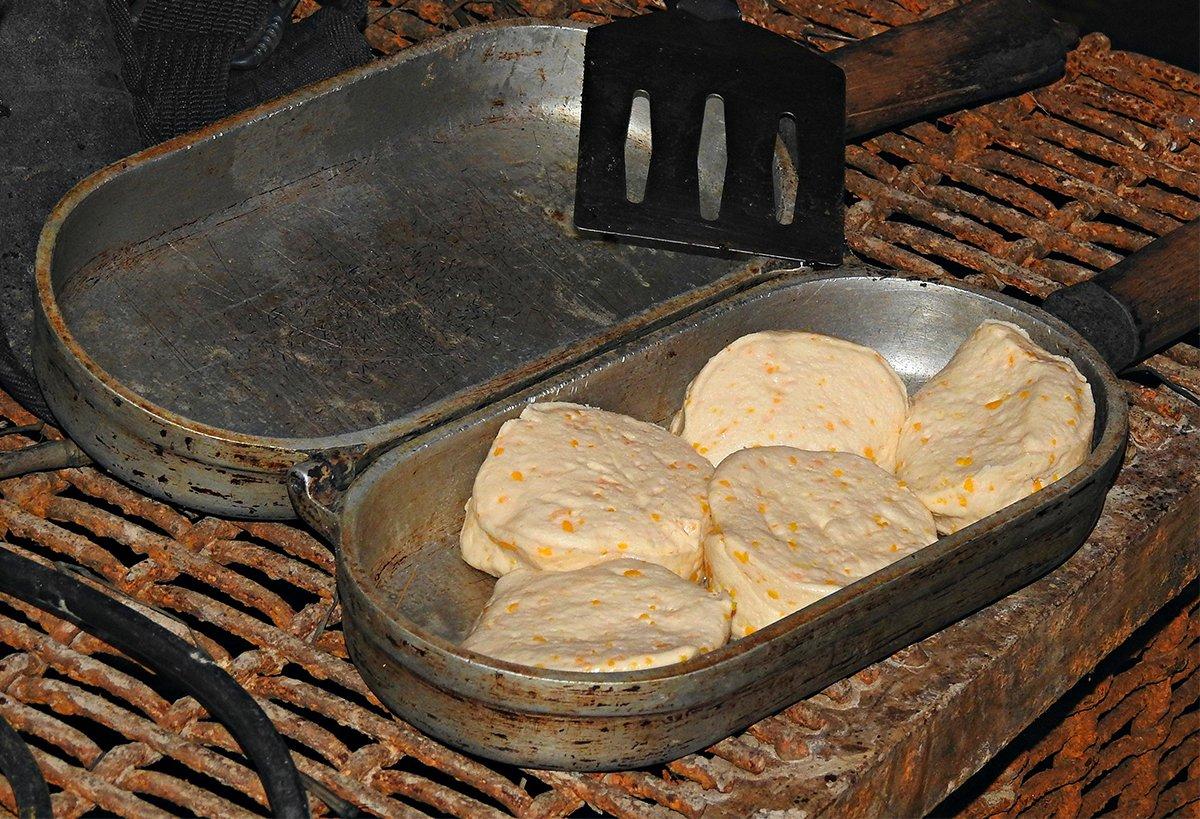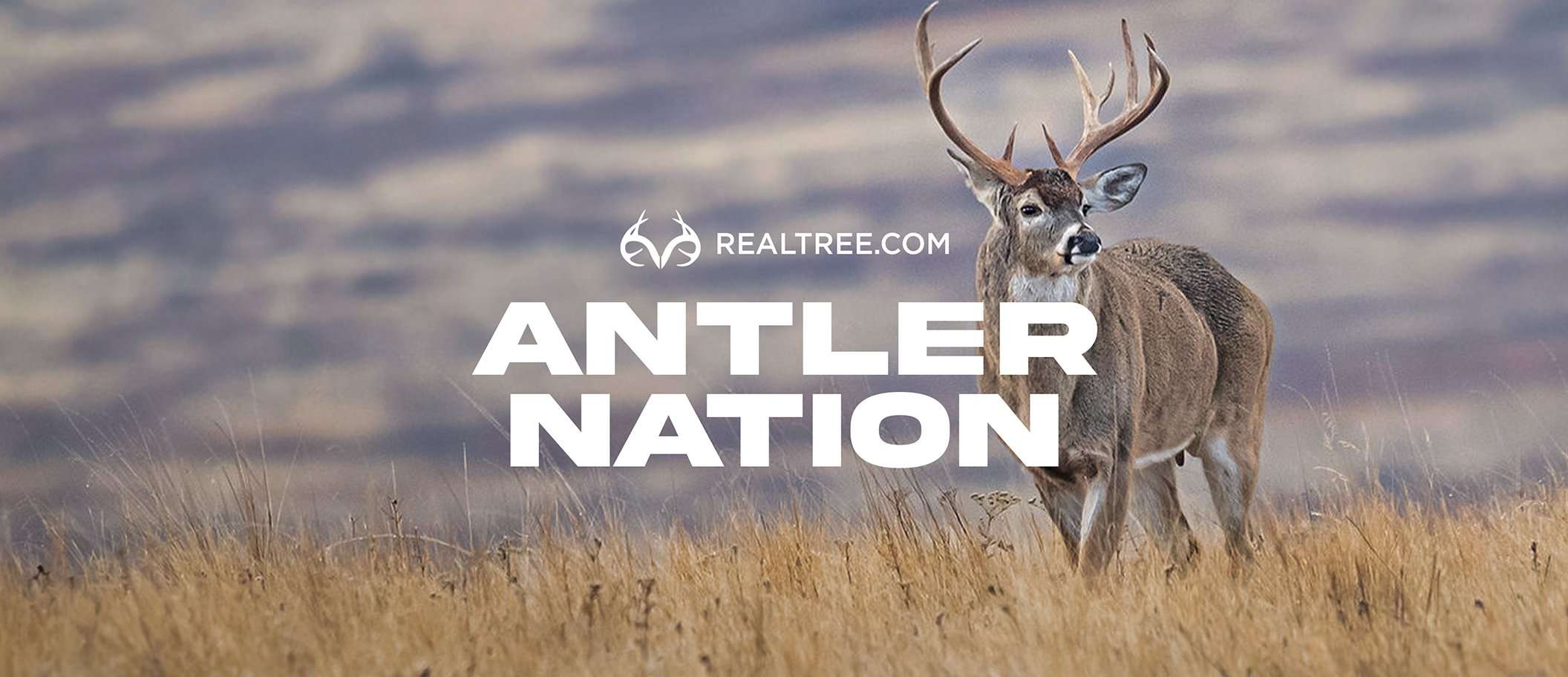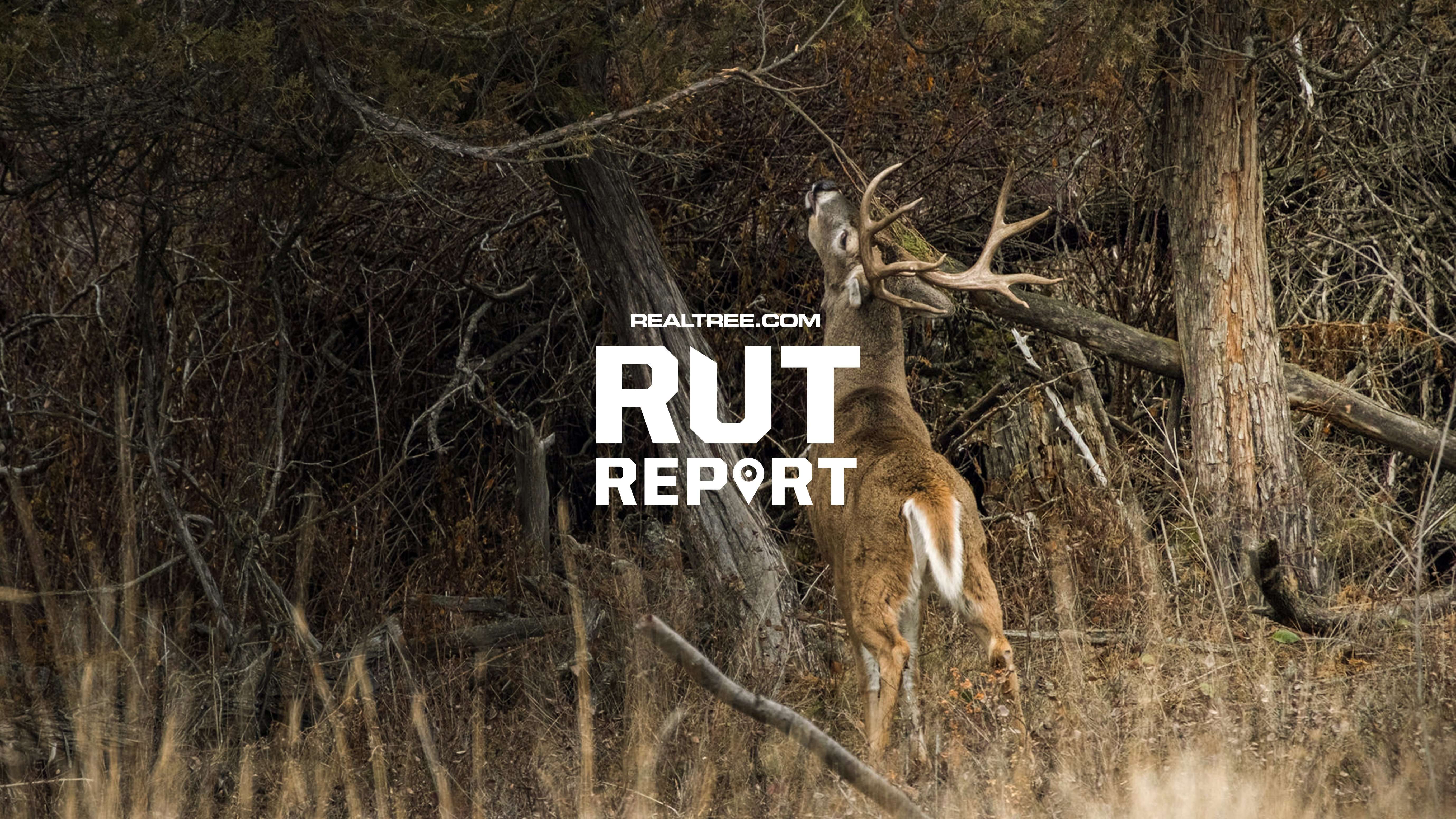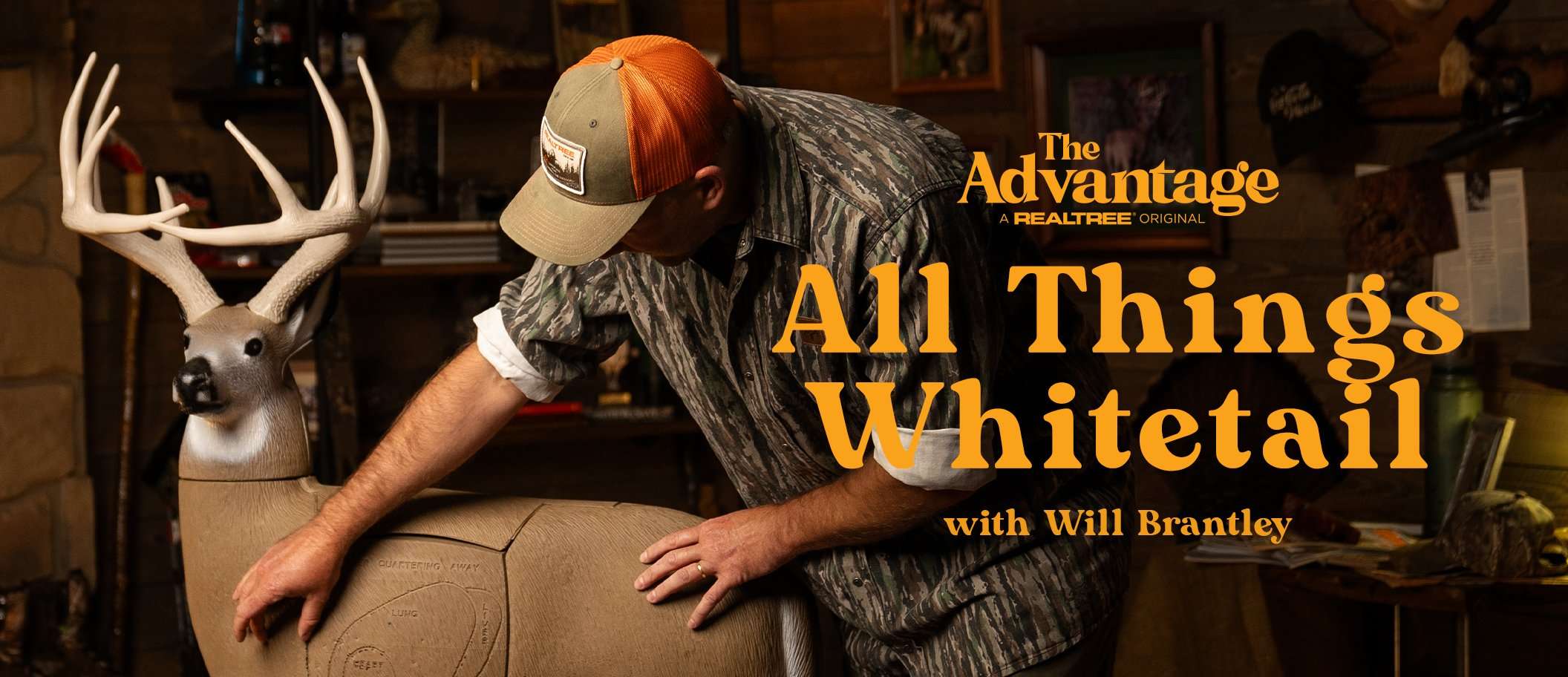Sometimes, the food is the best part of a duck hunt.
Around here, our duck season is hit or miss. Mostly miss. Because of that, our duck hunts are mostly a social affair, a time to hang out with buddies, shoot the breeze, and enjoy a morning afield. A big part of that enjoyment is a good duck-blind breakfast.
Yea, we could stop and get fast food on the way in, or make cold sandwiches at home and bring them with us, but a hot breakfast cooked in the blind is way better than either of those options.
Over the years, we have picked up a few tips that help streamline things when it comes to cooking in the confined spaces of a boat or duck blind.
1.Safety First
Duck blinds are often flammable, couple that with an open flame, confined areas, excited hunters and hungry dogs, and care needs to be taken to keep a fine morning from turning into a disaster. Keep a fire extinguisher handy at all times. It's better to ruin a morning's breakfast than to watch the hard work of a blind build go up in flames.
Make sure your cooking equipment is stable, a wayward bump by dog or hunter happens fairly often and can topple a precariously placed stove. Take a few minutes to make sure everything is solid and level before you start cooking.
2.Prep at Home
Even on a slow day, time and table space are pretty limited in the blind. Do as much prep work as possible at home. Cooking ham? Cut it up into biscuit-sized pieces before you leave the house. Adding peppers or onions to your breakfast? DIce them before you leave the house and store them in zip-style bags.
If you plan to cook scrambled eggs, go ahead and crack and scramble them into a plastic container with a tight-fitting lid. Not only will it save time in the blind, a plastic container is a lot easier to transport to and from the blind than a dozen or more raw eggs in thin styrofoam or cardboard cartons.
3. Use Cast Iron
Duck blinds and boats can make for a rough and tumble kitchen. A well-seasoned cast iron pan will stand up to the beating and banging that goes on way better than a thin non-stick skillet.
Cast iron also heats more evenly than thinner cookware. A definite plus when heating over the small gas flame of a camp stove. Cooking bacon or sausage in the skillet first provides plenty of oil for cooking the eggs.
Clean up is as simple as pouring in a bit of clean water after the cooking is finished, giving the pan a good scrape with a spatula, then a quick wipe with paper towels or a rag.
4. Find a Biscuit Cooker
Biscuits can be tough when your only heat source is a gas flame. Keep your eyes open at yard sales and auction sites for an old hinged fish poaching pan. They make for a very serviceable oven when heated on a camp stove.
Use plenty of butter and fill the cooker with canned biscuits. Heat slowly over a low flame, flipping the pan often. Will your biscuits be golden brown and flaky every time? Nah, more often than not a flight of ducks or geese will show up mid-cook and one side will end up dark or even black. Will they still be good filled with sausage, ham, or bacon and a big spoonful of eggs, you betcha.
Besides biscuits, try filling the well-buttered pan with a few honey buns. They make for a fine end to a hunting breakfast. Don't have a biscuit cooker? Try frying a few honey buns in a skillet full of bacon grease. You won't be sorry.
5. Share With the Dog
Waterfowl dogs work hard. Yea, you might not feed them people food at home, but a bite of bacon or biscuit (or even a full plate) will hit the spot on a cold morning duck hunt. Besides, who can resist the pleading eyes of a lab peering at you over a steaming plate of breakfast?
